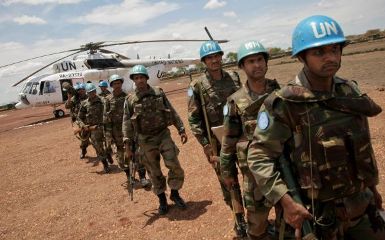South Sudan delays meetings on Abyei until Bashir-Kiir encounter: UN
October 26, 2017 (WASHINGTON) – Juba has delayed the meetings of Sudan-South Sudan joint body on Abyei until a meeting between President Omer al-Bashir and his counterpart Salva Kiir, an international official said.

Also, a meeting scheduled for 16 August in Addis Ababa had been postponed after South Sudan cited the need to await the outcome of the expected meeting between the Presidents of South Sudan and Sudan, Zuev said.
President Kiir will be in Khartoum on Tuesday 31 October according to the Sudanese foreign minister Ibrahim Ghandour.
The international official urged both Governments to engage in discussions to resolve the deadlock over establishing the temporary institutions that should lead to the determination of Abyei’s final status.
However, Akuei Bona Malwal the South Sudanese Ambassador to the UN told the meeting that the call to establish the Abyei Interim Administrative structures had been superseded by events.
Rather, he called for final settlement of the matter on the basis of the African Union High Implementation Panel proposal of 21 September 2013 which provides to hold the referendum without the participation of the Misseriya nomads. Sudan refused the proposal.
For his part, Sudanese Ambassador Omer Dahab Fadl Mohamed regretted Juba “lack of enthusiasm” to implement the agreement of 20 June 2011 and renewed calls on the Government of South Sudan to establish the Abyei institutions to achieve a “lasting peace” as he said.
LACK OF WILLINGNESS
However, Luis Bermúdez, Uruguay’s Ambassador to the UN warned the two parties against the lack of willingness to settle their dispute over Abyei.
“Since UNISFA was hamstrung by the lack of willingness on the part of both sides to resolve the conflict, it was their primary responsibility to implement the 2011 agreements,” Bermúdez stressed.
The last mandate extension for UNISFA had been a conditional one because the Council stipulated in resolution 2352 (2017) that it would be the final extension unless both sides demonstrated that the Mechanisms established in the 2011 Agreement could function.
“The future of UNISFA was entirely in the hands of the Governments of Sudan and South Sudan,” he emphasized.
(ST)
